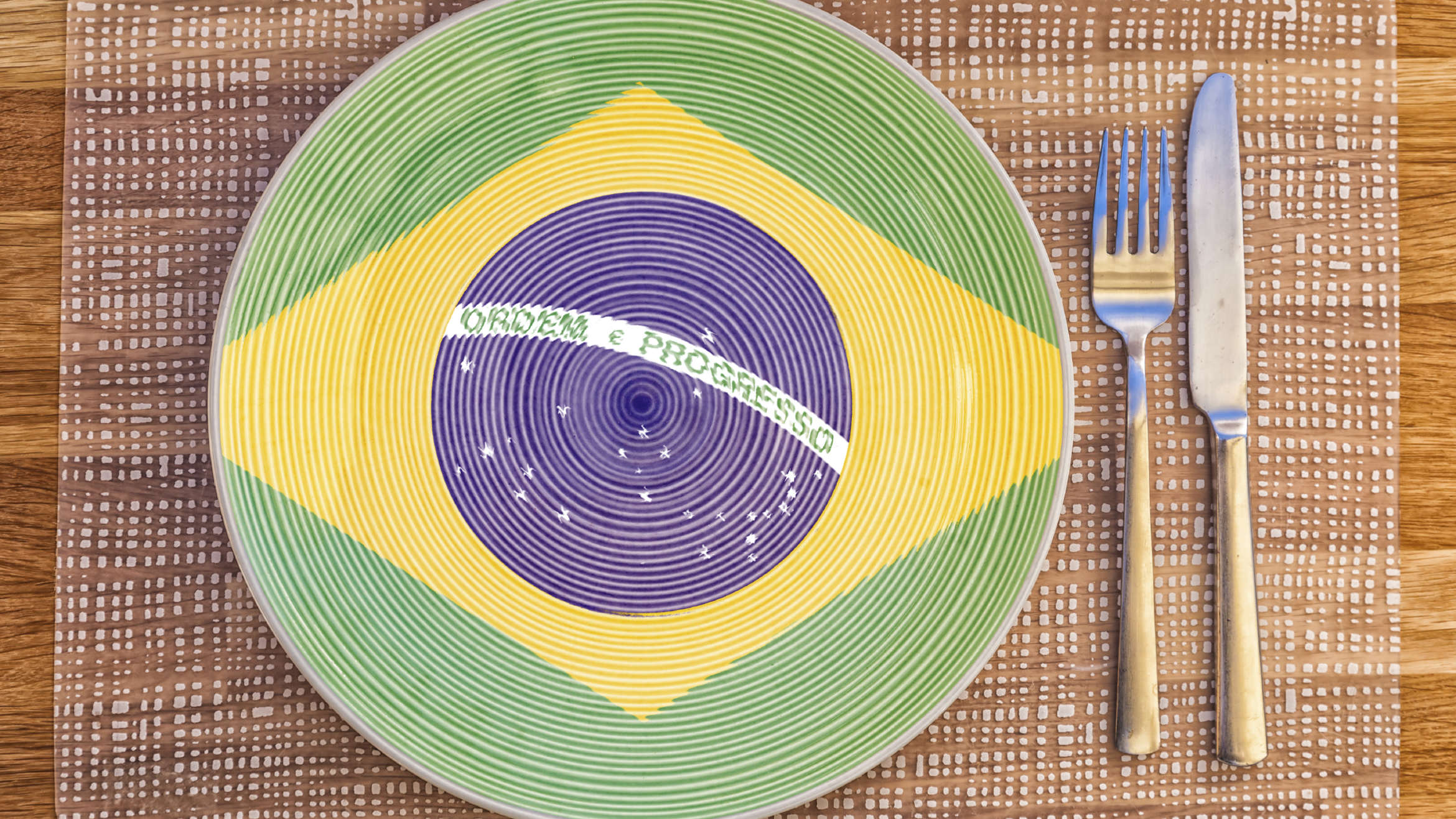In keeping with my commitment to bring a helpful monthly dietary restrictions calendar to everyone, here are May dates to keep in mind as you plan menus for May events.
May 1st
Observance & Dietary Restriction
Lailat al Bara’ah (Islam) – This holy day is known as Lailat al-Bara’ah (“Night of Forgiveness”) in Arabic and Shab-Barat in Persian. It is celebrated on the night of the full moon. It is believed this is the night when fates are fixed.
How to include participants
Followers observe the date by holding a vigil throughout the night. They congregate at the local mosque to fast, pray, and read the Qur’an. On the whole, however, and especially in Indo-Pakistan, the night is celebrated with illuminations and fireworks.
May 2nd
Observance & Dietary Restriction
Twelfth Day of Ridvan – This observance begins on the evening of the 1st and is the Bahá’í commemoration of the twelve-day period in 1863 when Baha’u’llah declared that he was God’s messenger. There are severe work restrictions on days 1, 9, and 12 when festival participation is most important.
How to include participants
The work restrictions on Bahá’í during Ridvan mean events should be moved to different days, so attendance is possible. Other than the work restrictions, there are no specific dietary restrictions.
May 3rd
Observance & Dietary Restriction
National Day of Prayer (Christian, Protestant, Sikh, Islam, Hindu, Jewish) – An annual day of observance held on the first Thursday of May, designated by the United States Congress, when people are asked “to turn to God in prayer and meditation.” Each year since its inception, the president has signed a proclamation, encouraging all Americans to pray on this day. This day is celebrated by Americans of many religions, reflecting the demographics of the United States. On the National Day of Prayer, many Americans assemble in prayer in front of courthouses, as well as in houses of worship, such as churches, mosques, synagogues, and temples. Luncheons, picnics, and music performances revolving around praying for the nation are also popular observances.
How to include participants
Dietary restrictions will be limited to daily practices of each religion, but most will opt to participate in the day of prayer, even though it is not required for any religion. A sensitive move would be to plan an event on a different day or excuse work.
May 3rd
Observance & Dietary Restriction
National Day of Reason (Atheist, Agnostic, Humanist, Secularist) – A secular celebration for humanists, atheists, and other secularists and freethinkers in response to the National Day of Prayer, a legal holiday in the United States that many atheist and secular groups view to be unconstitutional. The purpose of the National Day of Reason is to “celebrate reason—a concept all Americans can support—and to raise public awareness about the persistent threat to religious liberty posed by government intrusion into the private sphere of worship.” The National Day of Reason is also meant to help build community among the non-religious in the United States.
How to include participants
This observation is just as important regarding inclusion, as the national day of prayer. If you choose to avoid activity or personal days to be taken without penalty, do the same for those who sight the Day of Reason for their time off.
May 3rd
Observance & Dietary Restriction
Lag B’Omer (Jewish) – Observation of the counting of the day—the link—between Pesach and Shavout. It is often celebrated by the lighting of bonfires.
How to include participants
The religious dietary restrictions guide regarding what can be consumed by practicing Jews is called kosher. Foods labeled kosher are prepared under strict guidelines to the entire supply chain, from harvest and slaughter to preparation, packaging, and food combinations. Pork and shellfish are famously not allowed. Religious holidays have additional restrictions and also food traditions.
May 16th – June 14th
Observance & Dietary Restriction
Ramadan (Islam) is a holiday with significant work restrictions – Qur’an was first revealed during this month, and Muslims see the Qur’an as the ultimate form of guidance for mankind. The night that the Qur’an was revealed to Muhammad is called Lailat ul Oadr, and standing in prayer this one night is thought to eclipse months of worship.
How to include participants
Fasting is required during the entire month of Ramadan. Muslims refrain from food and beverages during the daylight hours. Worshipers break the fasting each night with prayer, reading of the Qu’ran, and a meal called the iftar. In addition, many Muslims also attend night prayers at Mosques. If possible, avoid scheduling major events and deadlines during this time. Be sensitive to the fact that Muslims celebrating Ramadan will be fasting during the day (continuously for 30 days) and will likely have less stamina as a result. If planning an evening event, be sure to follow halal dietary restrictions. Helpful guides can be found HERE and HERE
May 17th
Observance & Dietary Restriction
Ascension of Jesus (Eastern Orthodox Christian) – Recognition of the departure of Jesus from earth after the resurrection. It is perhaps the earliest observed celebration in Christianity. It is observed with worship including prayers and music.
How to include participants
There are several types of Christianity, and each has their own dietary restrictions. This guide has a useful reference for the three major types and their related menu needs.
May 20th
Observance & Dietary Restriction
Pentecost (Christian) – Observation of the day when the God the Holy Spirit came to the disciples in the forms of tongues of fire and rushing wind. It is a traditional day for baptism and confirmation of new Christians.
How to include participants
There are several types of Christianity, and each has their own dietary restrictions. This guide has a useful reference for the three major types and their related menu needs.
May 20th-21st
Observance & Dietary Restriction
Shavuot (Jewish) Holiday with significant work restriction – commemorates the receipt of the Torah on Mount Sinai, and is two of three pilgrimage festivals.
How to include participants
The religious dietary restrictions guide regarding what can be consumed by practicing Jews is called kosher. Foods labeled kosher are prepared under strict guidelines to the entire supply chain, from harvest and slaughter to preparation, packaging, and food combinations. Pork and shellfish are famously not allowed. Religious holidays have additional restrictions and also food traditions.Work restrictions apply. Avoid scheduling important academic deadlines, events and activities.
May 22
Observance & Dietary Restriction
Buddha Day / Visakha Puja (Buddhist) is traditionally known as Buddha’s birthday. It is the major Buddhist festival, commemorating the birth, enlightenment, and death of the Buddha.
How to include participants
Buddhists often decorate their homes and visit their local temples. Observers are encouraged to refrain from slaughtering and to avoid eating meat on this date. Provide food accommodation as requested, and offer vegetarian options when planning menus for events on this date.
May 23rd
Observance & Dietary Restriction
Declaration of the Bab (Bahá’í) – Recognizes the declaration in 1844 by Ali Muhammed that he is the anticipated “Coming One” of all religions.
How to include participants
Work is suspended. Those celebrating will likely ask for the day off. Accommodations should be made for attendees and employees.
May 27th
Observance & Dietary Restriction
Trinity Sunday (Christian) – Christians honor the belief in one God with a threefold nature and celebrate the Christian doctrine of the Trinity: the Father, the Son, and the Holy Ghost.
How to include participants
There are several types of Christianity, and each has their own dietary restrictions. This guide has a useful reference for the three major types and their related menu needs.
May 27th
Observance & Dietary Restriction
Pentecost (Eastern Orthodox Christian) – Also called Trinity Day or Descent of the Holy Spirit, it is one of the Great Feasts of the Orthodox Church, celebrated 50 days after Pascha.
How to include participants
There are several types of Christianity, and each has their own dietary restrictions. This guide has a useful reference for the three major types and their related menu needs.
May 31st
Observance & Dietary Restriction
Corpus Christi (Roman Catholic) – This feast day is in recognition of the Eucharist – the Blessed Sacrament of the Body and Blood of Christ. The real presence of the body and blood of Jesus is honored. It emphasizes the joy of the institution of the Eucharist, which was observed on Holy Thursday in the somber atmosphere of the nearness of Good Friday.
How to include participants
There are several types of Christianity, and each has their own dietary restrictions. This guide has a useful reference for the three major types and their related menu needs.



